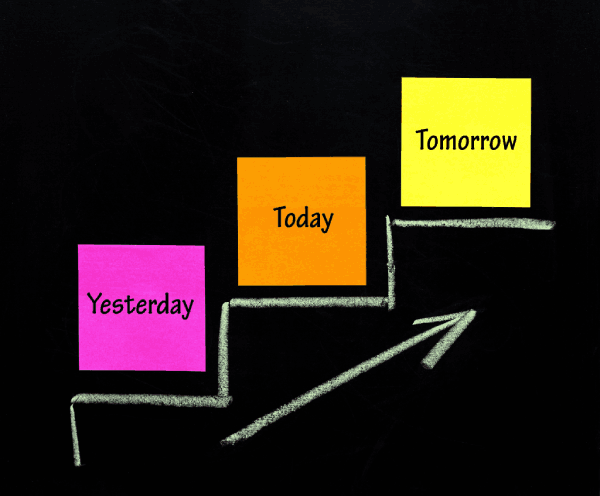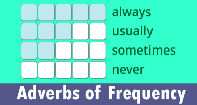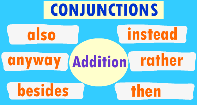×
Change Avatar
Adverbs of Time
console:
Adverb of Time

Adverbs of time are a specific type of adverb that adds meaning to the main verb by specifying when an action or event occurred.
Here are some examples and their meanings:
| TODAY means the current day. | I’m going to the park today. |
| TOMORROW means the following day. | Tomorrow we will have ice cream. |
| YESTERDAY means the previous day. | We baked cookies yesterday. |
| NOW means at this very moment. | We are leaving right now. |
| LAST [WEEK/MONTH/YEAR/TIME] means the previous week, month, year, etc. | We went to Florida last week. We went to the zoo last month. We ate there last year. Last time we went, I was 10 years old. |
| FIRST means before anything or anyone else. | The dog got to the park first. |
| LAST means after everyone and everything else. | Sheri finished her dinner last. |
| SOON means in the near future, unspecified. | We will leave soon. |
| LATER means in the future, after a period of time. | We will leave later in the day. |
| AFTER means following an action or event. | We will go after lunch. |
| BEFORE means prior to an action or event. | We will go before breakfast. |
| CURRENTLY means now. | It is currently raining outside. |
| EARLIER means before/prior to an action or event. | We left earlier than our neighbors. |
| PREVIOUSLY means prior to, but completed. | I previously studied in Spain. |
| GRADUALLY means a bit over time. | We gradually coaxed her out of the tree. |
| INSTANTLY means right away in the moment. | We were instantly startled at the noise. |










